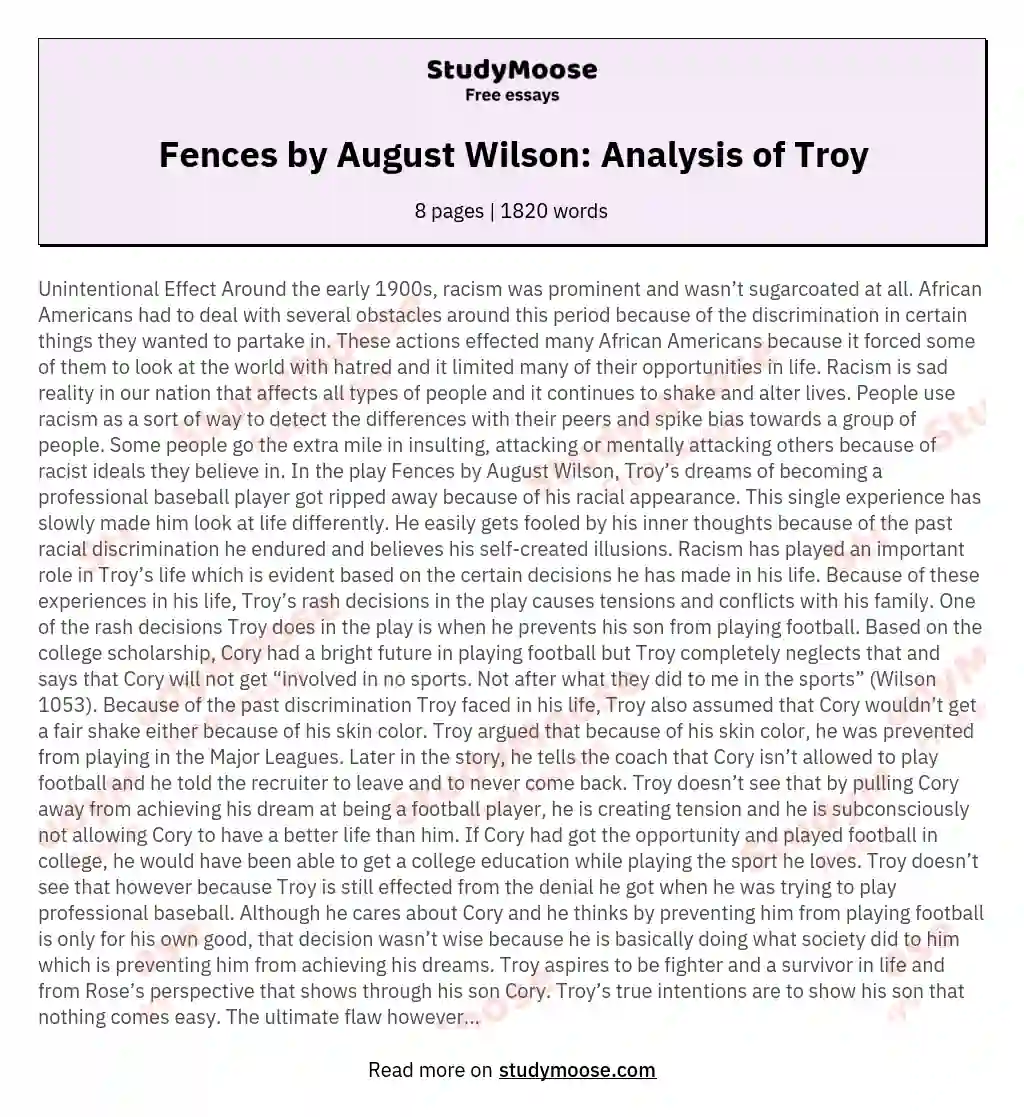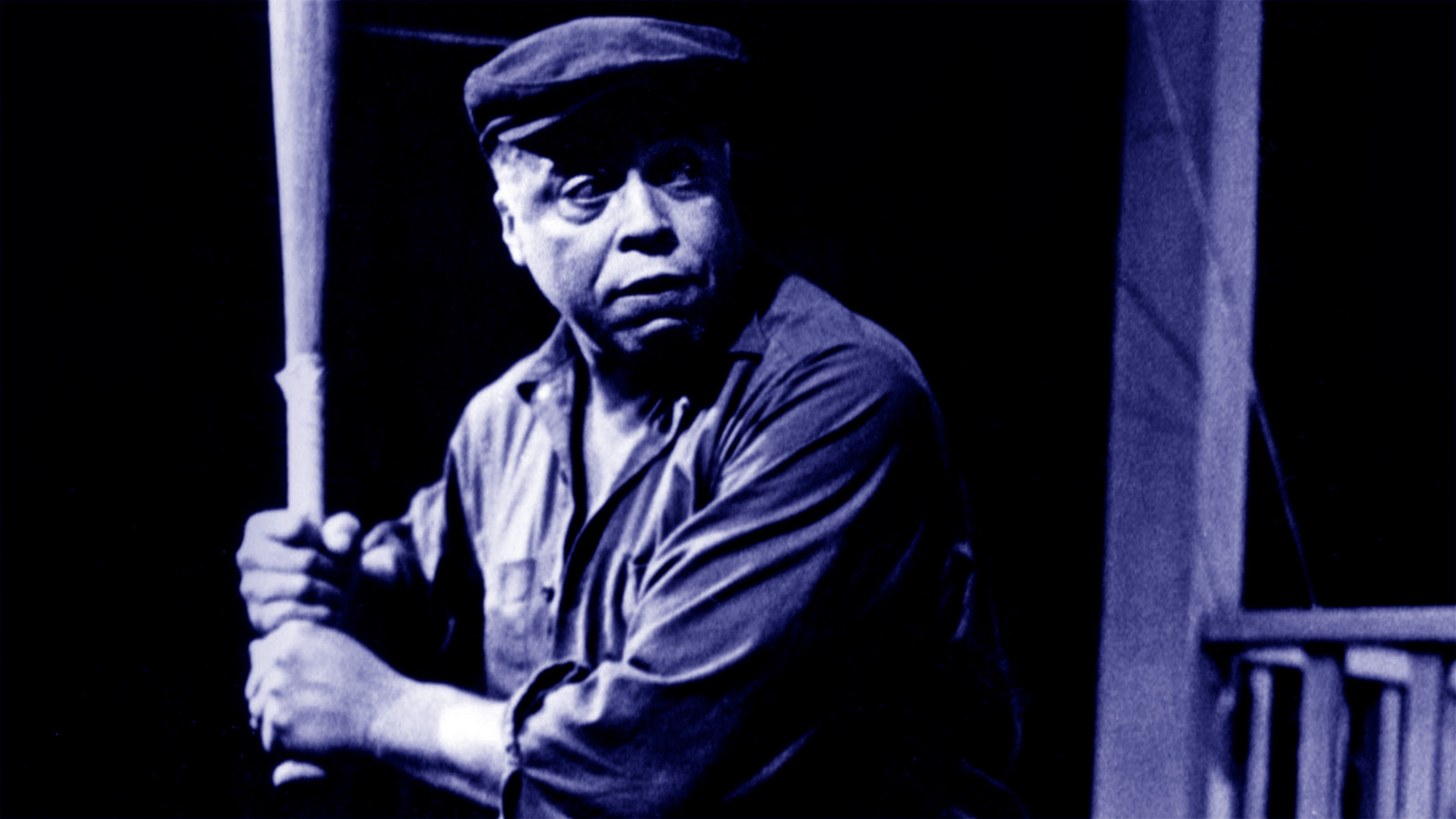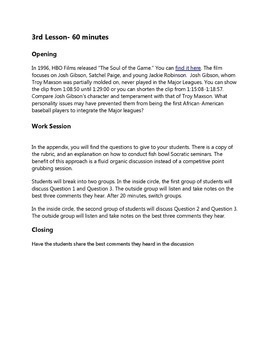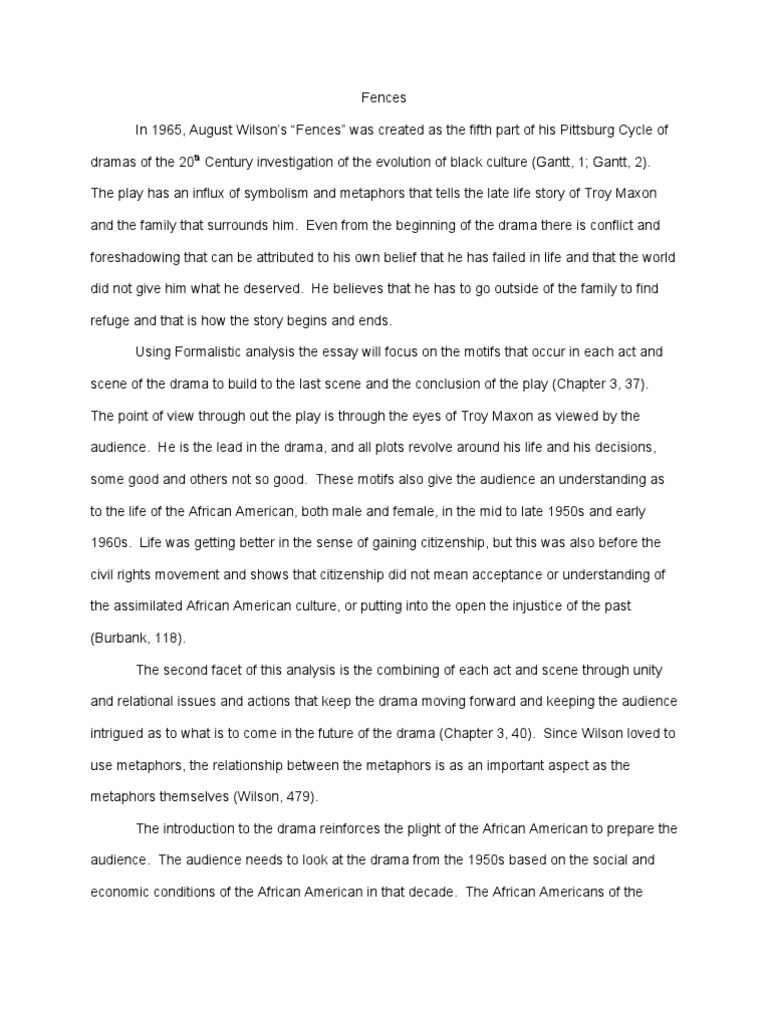"Fences," by August Wilson, is a Pulitzer Prize-winning play that explores the life and relationships of the Maxson family, a working-class African American family living in the Hill District of Pittsburgh during the 1950s. The play is told through the eyes of the protagonist, Troy Maxson, a middle-aged man who struggles with feelings of resentment, anger, and frustration as he tries to provide for his family and come to terms with his own personal failures.
At the heart of "Fences" is the theme of the American Dream and the ways in which it both supports and undermines the characters' sense of identity and purpose. Troy, in particular, grapples with the limitations of the Dream as a black man in a racially-segregated society. Despite his talent and drive, he is unable to achieve the financial stability and social mobility that he desires, and this frustration ultimately leads him to become bitter and resentful towards those around him.
Throughout the play, Wilson uses the metaphor of the fence to symbolize the barriers and limitations that prevent the characters from achieving their dreams. For Troy, the fence represents both the physical and metaphorical barriers that have held him back in life, such as racial discrimination and his own personal failures. However, the fence also serves as a source of hope and possibility, as it represents the potential for growth and change.
One of the most poignant examples of the fence as a metaphor for the American Dream is the character of Cory, Troy's son. Cory is a talented athlete with the potential to go to college on a sports scholarship, but Troy's own bitterness and resentment towards the Dream prevent him from supporting Cory's aspirations. Instead, Troy pushes Cory to take a job at the A&P, insisting that he has to "learn to take what you can get" rather than striving for more. This conflict between Troy and Cory serves as a powerful commentary on the ways in which the Dream can both empower and stifle individuals, depending on their circumstances.
Another important theme in "Fences" is the role of family and the ways in which it can both support and hinder the characters' personal growth. Troy's relationship with his wife, Rose, is a particularly complex one, as he both loves and resents her for the ways in which she has supported him throughout his life. Similarly, Troy's relationship with his brother, Gabriel, is strained due to Gabriel's brain injury, which Troy sees as a burden rather than a source of support.
Ultimately, "Fences" is a poignant and thought-provoking exploration of the American Dream and its impact on the lives of working-class African Americans. Through the use of the fence as a metaphor, Wilson offers a powerful commentary on the limitations and possibilities of the Dream, and the ways in which it can shape the relationships and identities of individuals.
August Wilson's play "Fences" is a powerful and poignant portrayal of the struggles and triumphs of the African American experience in the 1950s. Through the character of Troy Maxson, Wilson delves into themes of family, fatherhood, race, and the devastating impact of racism on the lives of black Americans.
Troy Maxson is a complex and multifaceted character who serves as the central figure in the play. He is a deeply flawed man, grappling with his own demons and past traumas as he tries to provide for his family and make sense of the world around him. Troy's life has been marked by struggle and hardship, and he is deeply mistrusting of the world and those around him. Despite his tough exterior, however, Troy is also a loving husband and father who deeply cares for his family and wants the best for them.
One of the central themes of "Fences" is the impact of racism on the lives of black Americans. Throughout the play, Troy grapples with the ways in which racism has shaped and limited his opportunities in life. He is deeply resentful of the way in which he has been treated and held back by society, and this resentment shapes his relationships and interactions with others.
Another key theme in "Fences" is the role of fatherhood and family. Troy's relationships with his son Cory and his brother Gabriel are particularly significant, as they reveal the different ways in which he approaches and understands the responsibilities of fatherhood. Troy's relationship with his own father is also a significant factor in his understanding of what it means to be a father, and the play explores the ways in which the past can shape and influence the present.
In conclusion, August Wilson's "Fences" is a rich and complex exploration of the African American experience in the 1950s. Through the character of Troy Maxson, the play delves into themes of family, fatherhood, race, and the impact of racism on the lives of black Americans. Its powerful themes and characters continue to resonate with audiences today, making it an enduring and important work of literature.








